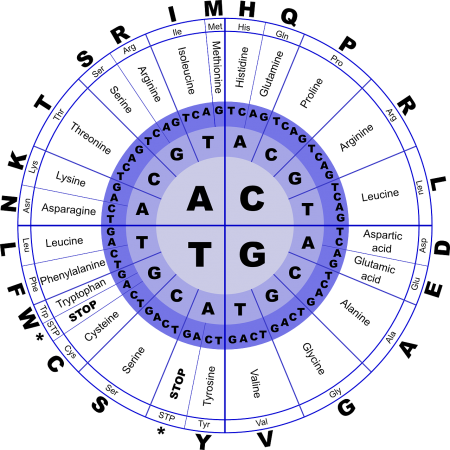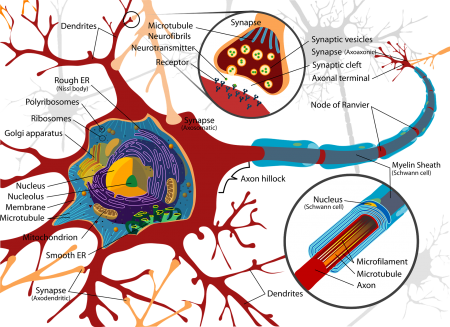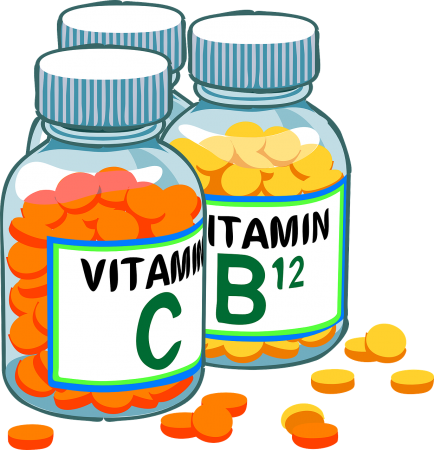Methylation
What Impact Is It Having on Your Mental Health
I am getting more and more frequent prospective clients contacting me with this question. “Do you work with MTHFR?”, or am I familiar with it, or do I specialize in this?
Yes, I know what it is and the impact it has on the body, but I am finding people are getting short sited and only focusing on their genetic results. Your genes are just a piece of what is going on with you. For some, addressing the genetic SNP may result in no improvements and for others they may be huge. And for others, adding in supplementation for MTHFR may make them feel worse!
Remember, you are an individual, made up of many genes and many other factors. You are more than just MTHFR and therefore while I look at it and take it into consideration, it is just one piece of the pie.
But even so, if you are curious as to what methylation is, what MTHFR is, why it is important and how a disrupted methylation cycle maybe impacting your health, then continue to read this article.
What Is Methylation and Why Should I Care About it?
Methylation is a chemical process with numerous reactions that occur in every cell of our bodies in which a methyl group is added to a substrate such as hormones, DNA, neurotransmitters (NT’s), and immune cells. This biochemical reaction can impact nearly every system in our bodies.
MTHFR (or methylenetetrahydrofolate) is an enzyme that has a central role in the cycle and plays a central role in converting folate into the active form that your body needs. You need this folate conversion as it then converts the amino acid homocysteine into another amino acid methionine. The body then uses methionine to make proteins and other important compounds.
This is also one reason why the homocysteine marker is looked at on blood work.
Some Functions that Require Methylation
- Cellular energy and mitochondrial function
- Detoxification and liver health
- DNA production and expression
- Fertility and fetal development
- Immune cell creation and function
- NT production
Chronic Health Issues and Methylation
Impaired methylation can contribute to various health issues. If you have any of the conditions below it may be helpful to look to see if you have a genetic methylation impairment. But even so, know that there are many other root causes for the conditions listed below, not just methylation! A MTHFR defect is often just one piece to the puzzle. You can do genetic testing such as 23andme or ask your doctor to run a methylation test. I am glad to see that more doctors are running this test for their patients who have mental health issues. (ask your doctor to test homocysteine also well as for MTHFR)
- Autism
- Allergies
- Alzheimer’s disease
- Anxiety
- Depression
- AI disorders
- Birth defects
- CVD
- Cancer
- Diabetes
- Infertility, miscarriage
- Diabetes
- Parkinson’s
- Schizophrenia
- Thyroid disease (MTHFR has been linked to thyroid cancer)
- Chronic viral infections
Some other signs and symptoms of impaired methylation can include brain fog, irritability, being short tempered, and sensitivity to chemical smells and odors,
Causes of Impaired Methylation
Genetic SNP’s are the most common cause, but not the only cause. SNP’s is short for single nucleotide polymorphisms. Each SNP, (you have many), represents a difference in a single DNA building block called a nucleotide. Most SNP’s have no effect on your health. However, there are some that can impact your health.
To be clear, just because you have a SNP does not mean you have a methylation issue! A person can have zero SNP’s for MTHFR and have a methylation imbalance!
- Genetic mutations (SNP’s)
- Candida/yeast overgrowth
- Diet and lifestyle (SAD)
- Environmental toxin exposure (mold, pesticides, BPA, phthalates, etc.)
- Aging
- Alcohol
- Stress, early life trauma
- Heavy metals
- Sleep deprivation
- Gut dysfunction, leaky gut syndrome
- Nutrient deficiencies, especially folate, B12,
- Certain medications such as PPI’s, antibiotics, cholestyramine, colestipol, oral contraceptives, nitrous oxide and metformin.
Some of these above causes may need to be addressed before you can start taking supplements to support methylation. For instance, if you have candida, and you don’t address it, and instead just start taking a methyl folate product, you may notice no difference and your lab markers such as a high homocysteine may not budge.
Not only can yeast overgrowth slow down the methylation cycle but so can heavy metals and toxin overload as well. For instance, some may need to start with a liver protocol first or add in glutathione first to assist in cleanup of toxins.
What SNP’s Should Be Tested
To see if you have a genetic mutation, there are two SNP’s that are most commonly looked at. These are MTHFR C677T and MTHFR A1298C. (There are many SNP’s for methylation, but these are the two most common ones).
Having a heterozygous SNP of C677T can cause 40% methylation defect and having homozygous of that same SNP can lead to 70-90% methylation defect. For the A1298C, typically there is no function loss with a heterozygous SNP and with a homozygous of this same SNP, typically only a slight function loss. However, this slight function loss can be related to heart disease and increased risk of stroke so should still be taken into consideration and looked at side by side along with homocysteine, lipid panel, and CRP.
These SNP’s are MTHFR SNPS. MTHFR is an enzyme that converts the inactive form of folate to methyl folate to be used in the methylation cycle. Research estimates that possibly up to 40% of the population has a MTHFR genetic mutation.
However, here is where I think people run into trouble. They find out they have one or two SNP’s and immediately begin to address this. Just because you have the SNP does not mean you have to address it. You must look at the individual person and their entire makeup, not just the gene! Otherwise, then we run into problems doing symptom management and not addressing you as a whole person.
Your doctor may suggest that you start on a methyl folate, B12, SAMe, to support methylation. For some, you may feel worse right off the bat, others may feel better, then worse again. This happens, because you are adding in too much of one supplement and are overwhelming this pathway and it can shut down the methylation cycle. It is a fine balance, and not as easy as adding in B vitamins!
How Do You Know If You Should Be Addressing a MTHFR Defect?
There are many people that have one to two genetic mutations and have no issues at all! If that is the case, then leave it well enough alone! If you have health issues and are not sure if you should address this defect there are other lab markers that health professionals will look at to help you determine if it is an issue.
These include: homocysteine, RBC, serum folate, serum B12, MMA B12 test, and WBC. If you have celiac disease, you should get tested for MTHFR defect. Have your holistic health care provider review your lab numbers. A traditional western medicine doctor often considers numbers “normal” when holistic professionals do not-our ranges are different-ranges for optimal health, not what is normal for the “average” person in the population. But to be clear, as a holistic nutritionist, I will not review your labs and diagnose you, but rather make diet and lifestyle suggestions based on the lab results.
Your doctor can run a MTHFR test, most nutritionists can as well. You can also do genetic testing such as 23andme and find out through your SNP’s in your genetic profile as well.
If it is determined that you need methylation support, there are many professional supplements available specifically made to support the methylation cycle. Some people just need methyl folate while others need a supplement blend that has all the cofactors needed to support the methylation cycle.
However, if you do have a disrupted methylation cycle, you should avoid foods with folic acid, as this is synthetic and can disrupt the methylation pathway. It can cause more problems for you. You want to eat whole foods that naturally contain folate and in supplement form use 5-MTHFR, or folinic acid.
Not Everyone With MTHFR SNP’s Needs to Be “Treated”
Again to be clear, I am a holistic nutritionist and thus do not “treat” anything….You are more than just your MTHFR SNP’s. You may have some SNP’s that tell you to avoid folate and other gene SNP’s that will suggest that you should take folate. You are more than just your SNP’s! Supplementing should be based on the individual person not just your MTHFR SNP’s.
If you do supplement, know that before methyl supplementation, some need to use liposomal glutathione as people with MTHFR have low glutathione levels and this makes you more susceptible to liver congestion and toxin build up. In some cases, If this isn’t addressed first, you may end up feeling worse with B vitamin supplementation.
You can also supplement too much and you may end up with over-methylation. (I address over-methylation a bit more at the end of this post)
Mental Health and MTHFR
If you have depression or anxiety, it may be helpful to run the tests that I have mentioned. But even if you have a homozygous or a heterozygous defect, your anxiety or depression or other mental health issue may still have other underlying root causes. Some people feel amazingly better just by adding in the right nutrients and others do not. Any qualified health professional will look at you as a whole person not just your SNP’s
If your mental health issue has MTHFR as a component, it is typically related to 2 copies of C677T, so homozygous loss. These conditions include, ADD, schizophrenia, anxiety, depression, and autism.
Studies show that those with low folate levels tend not to respond well to SSRI medications and do better with folate supplementation. Keep in mind, mental health issues are more complex than just adding in a folate supplement but if low it may still be useful to add in.
Food First
Food should always be your first source of nutrients to support a methylation defect. These foods and nutrients will help to support the methylation process.
- Methionine: Meat, poultry, shellfish, eggs, nuts, sesame seeds, pumpkin seeds, teff, soybeans
- B12: meats, especially organ meats, poultry, fish, eggs, shellfish,
- B6: meats, pistachios, garlic, whole grains, sesame seeds, legumes, prunes
- Betaine: quinoa, beets, spinach, amaranth, oats, sweet potatoes, meats, poultry
- Folate: beans and legumes, sunflower seeds, nuts, spinach, asparagus, mustard greens, avocado
- Magnesium: pumpkin seeds, sesame seeds, beans, brazil nuts, almonds, whole grains
Avoid synthetic foods with folic acid as these can disrupt the methylation cycle.
If you have low stomach acid, this also needs to be addressed for the methylation cycle to function properly.
In addition to optimizing the diet, if you are an under methylator, sweating (sauna or exercise), addressing gut health, the adrenals and liver health along with using deep breathing techniques can be very helpful. It may be helpful to reduce alcohol consumption and to review your medications to see if they are having an impact.
Be careful not to supplement too much as then you may end up as an over methylator. Signs of over methylation include depression, paranoia, anxiety, head and neck pain, worry, headaches, insomnia and irritability. On lab work your histamine levels would be low and your absolute basophils would be low. If you over supplement, the easy solution is to cut back on your methyl supplementation.
Bottom Line
Just because you were tested for MTHFR doesn’t mean it needs to be addressed. And if it does need to be addressed, there is more to it than just taking methyl-folate. Nutrient deficiencies, gut health, detox pathways, high estrogen, environmental factors, stress, the immune system and medications you are taking all play a role and need to be addressed.
Sources
https://www.deannaminich.com/methylation-101/
https://ghr.nlm.nih.gov/gene/MTHFR
https://ghr.nlm.nih.gov/primer/genomicresearch/snp
https://kresserinstitute.com/treating-methylation-supplementing/
https://www.ncbi.nlm.nih.gov/pubmed/18950248
https://jnnp.bmj.com/content/69/2/228
Lynch, B. (2018) Dirty Genes. USA: Harper One








Thank you so much for this post!!! The misinformation is so rampant, that it is scary.
The B complex #12 from Thorne has 200 mcg. of methlytetrahydofolate in it. What does that mean to me if I’ve been taking it? I just read this article and tried to understand it – very complex – had no idea people were getting these genetic tests. But I also read that some people shouldn’t take it and knowing if you should or shouldn’t is the confusing part.